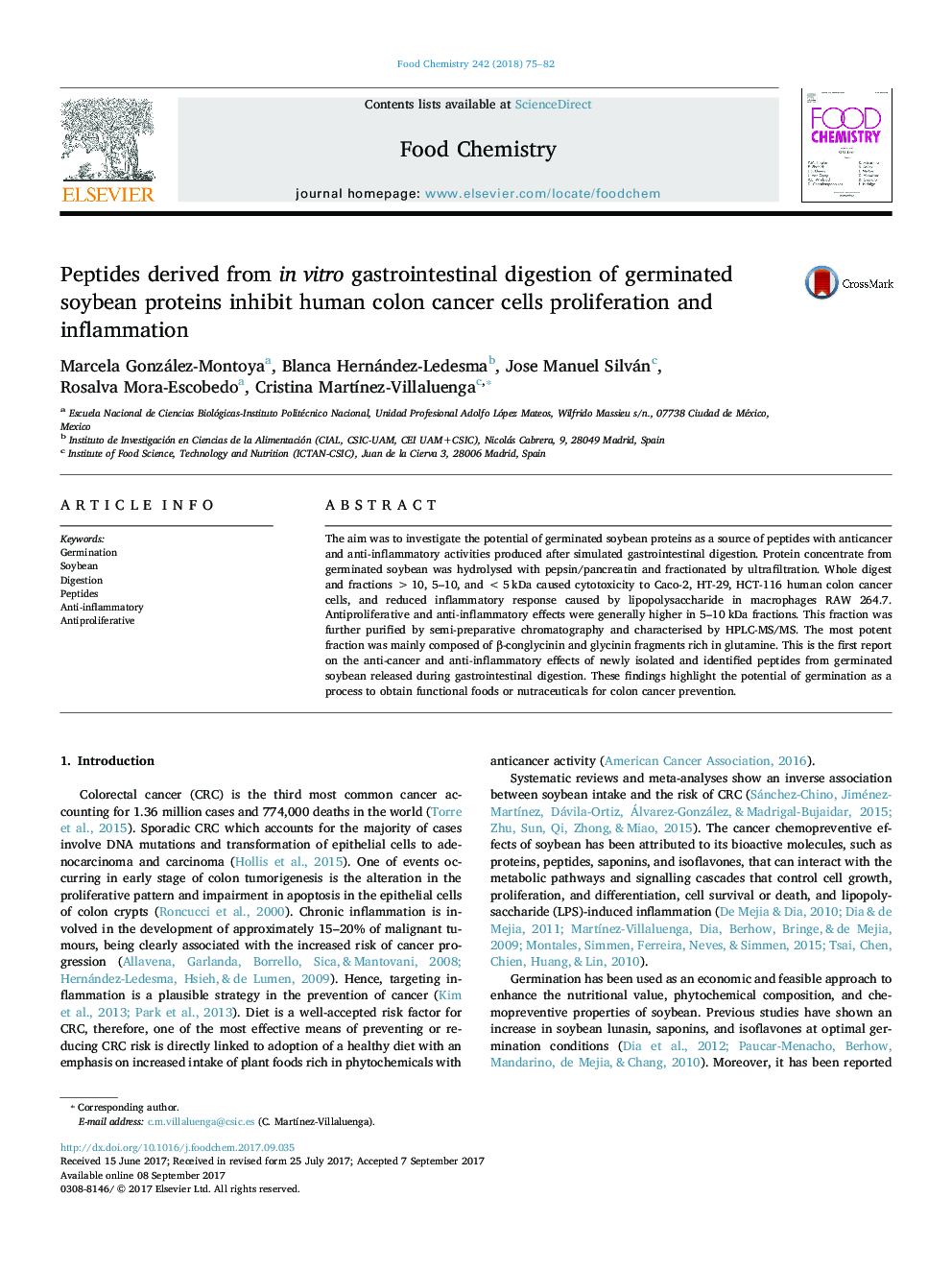| Article ID | Journal | Published Year | Pages | File Type |
|---|---|---|---|---|
| 5132585 | Food Chemistry | 2018 | 8 Pages |
â¢Germinated soybean digest inhibits Caco-2, HT-29, HCT-116 cell proliferation.â¢Germinated soybean digest reduces NO and PGD2 in LPS-induced macrophages.â¢Peptides of 5-10 kDa contribute in a greater extent to the observed effects.â¢Peptides in the most active fraction contained at least one residue of glutamine.
The aim was to investigate the potential of germinated soybean proteins as a source of peptides with anticancer and anti-inflammatory activities produced after simulated gastrointestinal digestion. Protein concentrate from germinated soybean was hydrolysed with pepsin/pancreatin and fractionated by ultrafiltration. Whole digest and fractions >10, 5-10, and <5 kDa caused cytotoxicity to Caco-2, HT-29, HCT-116 human colon cancer cells, and reduced inflammatory response caused by lipopolysaccharide in macrophages RAW 264.7. Antiproliferative and anti-inflammatory effects were generally higher in 5-10 kDa fractions. This fraction was further purified by semi-preparative chromatography and characterised by HPLC-MS/MS. The most potent fraction was mainly composed of β-conglycinin and glycinin fragments rich in glutamine. This is the first report on the anti-cancer and anti-inflammatory effects of newly isolated and identified peptides from germinated soybean released during gastrointestinal digestion. These findings highlight the potential of germination as a process to obtain functional foods or nutraceuticals for colon cancer prevention.
